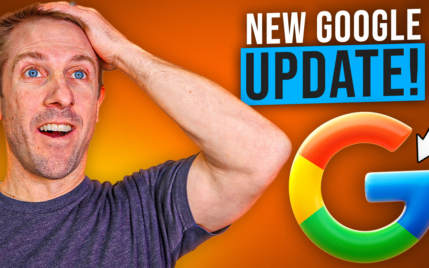Redbubble vs. Etsy: Which Site is Better for Selling Handmade Goods?

When you buy something through one of the links on our site, we may earn an affiliate commission.
When it comes to finding the ideal online marketplace for your products, you have no shortage of options. Many artists prefer not to run their own online store on a WordPress website but rather utilize the powerful search engines on sites like Etsy and Redbubble. With so many similarities, deciding between Redbubble vs Etsy can be a challenge.
How do you decide whether to start an Etsy shop or a Redbubble account?
Here are a few guidelines that might make your experience selling online move smoother and ultimately make you more money.
Contents
TL;DR: Which Online Marketplace is Better for Your Sales?
Redbubble focuses on print-on-demand services, making it easy to get started quickly. It's a hands-off process from start to finish. All you have to do is make the art for your products, set up a store, and let Redbubble do the rest of the work.
Etsy is more geared toward handmade and vintage items. In most cases, to make money on Etsy, you will need to create the items on your own and then handle shipping to customers. It's a more hands-on process but has an incredibly powerful search engine and massive customer base.
So the best option for you will depend on which of these seems to best suit your goals and preferences.
What Should Etsy Sellers Know?
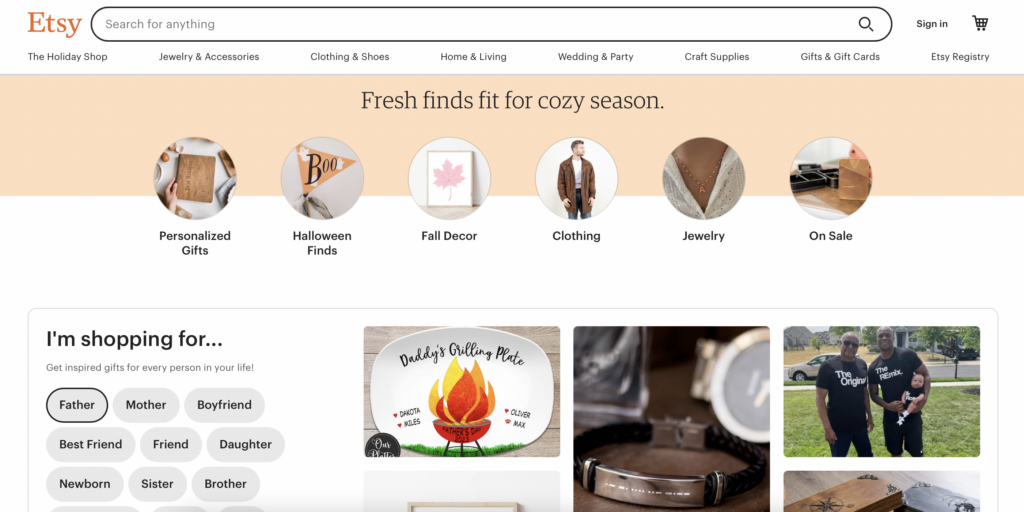
If you're thinking about opening a business as an online merchant of handmade goods, Etsy is likely the first place that comes to mind. You create the items to sell on Etsy, upload them to the platform, and set the selling price. Of course, the biggest draw is that Etsy is a powerhouse when it comes to sales of these unique items.
They have about $3.1 billion in gross sales each year, so why not use some of their traffic to go to your store?
Etsy has been around since 2005 and has proven itself time and time again as one of the preferred online marketplaces for artists to sell their crafted items. They have had roughly 7.1 million new buyers in the first quarter of 2023 and almost 90 million unique buyers.
With traffic like this, it just makes sense to create an online presence here.
What Should Redbubble Sellers Know?
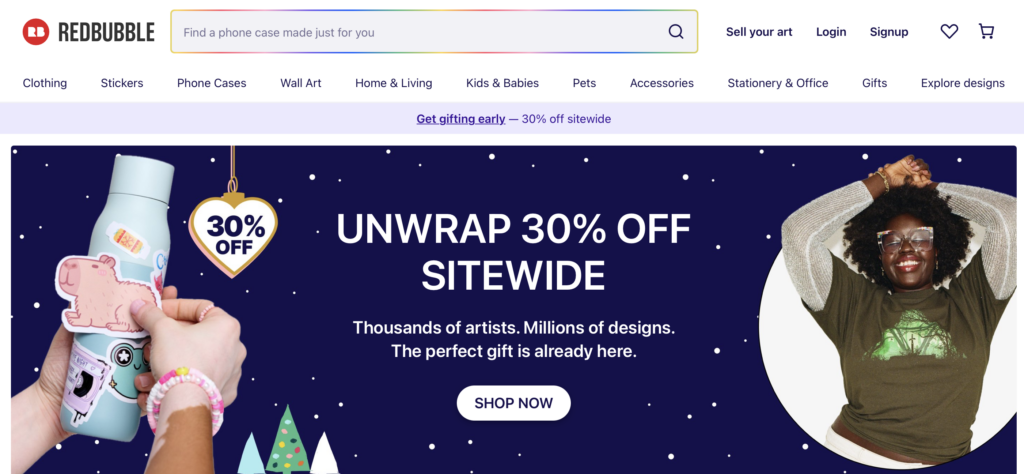
Redbubble is a little bit of a different option compared to Etsy. Artists who list their designs here don't have to actually manufacture their goods. Instead, Redbubble handles every aspect of the printing process, whether you want to sell t-shirts or art prints.
For those who want a more passive income stream as a side hustle, Redbubble may be the better fit.
Founded in 2006 (just one year after Etsy), their holdings also include TeePublic.com. This Australian-based company has a tremendous volume of traffic, which can be seen in their annual reports located here.
They also have a great Redbubble analytics tool that enables you to see how your sales are doing.
Is Redbubble legit? Get our full take on the site here!
When it comes to the setup process, Redbubble is extremely user-friendly. All you have to do is upload your designs and let the sales roll in. In the next section, we'll see a little bit more about how easy the setup process really is.
Check out this course on how to master the world of Redbubble.
Who Wins: Redbubble vs Etsy?
In this section, we're going to take a deeper look at how selling online works with both platforms. From the initial startup phase of the business to branding and marketing, you need to know the ins and outs before you can settle on which online merchant is the right place for your brand to land.
This should help you narrow down which online marketplace is going to be the better fit for you.
Ease of Setup
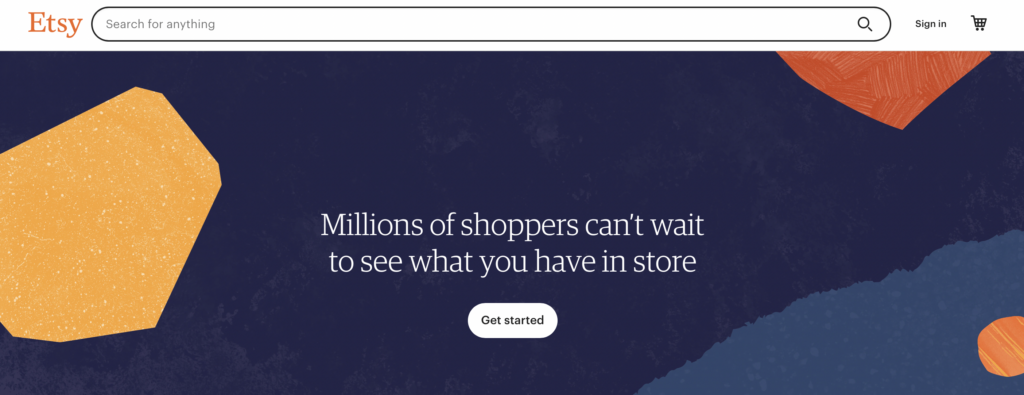
The good news is that you can get up and running quickly with both Etsy vs Redbubble. Both have a multi-step process to get your art or products uploaded. However, even the least tech-savvy person should have no problem creating an easy-to-navigate storefront for customers to start shopping.
For Redbubble, you have to make a free account and fill out important details for your store. This includes how you want to get paid (more on this in a little bit). Confirm your account, upload designs, and you're in business.
Setting up an Etsy shop is equally easy. Make an account, set up your payment information, and start creating product listings (for a small listing fee).
Winner: Tie
How to Upload Designs & Types of Items Sold
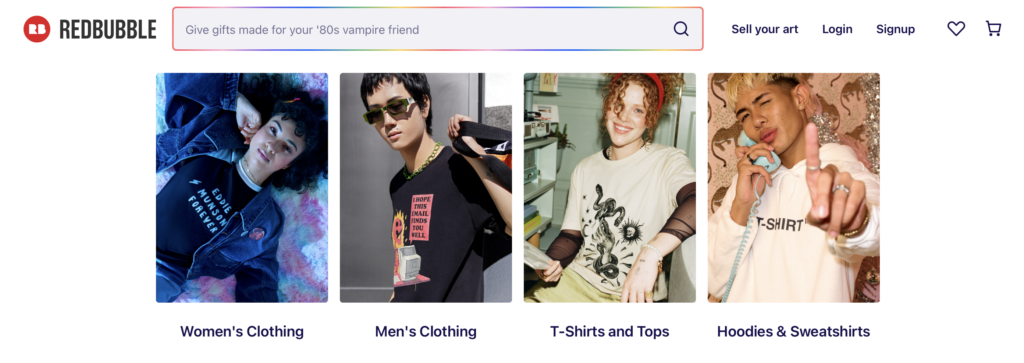
This is where the Redbubble vs Etsy debate starts to diverge. Each of these online store options has a different focus when it comes to the type of items sold.
Redbubble allows you to take digital designs and transform them into print products. There is a seemingly endless selection of products where you can position your design. For example, they allow you to sell your designs on items like:
- Wall art
- Phone cases
- Stickers
- Clocks
- Blankets
- Mugs
- And more!
If you can think of something you would like to sell with your design on it, Redbubble likely has an option that allows for a print-on-demand service. This gives you the ultimate flexibility when designing your storefront and enables you to sell whatever your customers demand.
On the other hand, Etsy is used to sell handmade goods or vintage items. You will have to actually physically make each of the items you want to sell.
Whereas Redbubble functions more as a print-on-demand storefront, an Etsy seller will be limited to what they can physically make upfront.
That being said, you can sell your design or item on just about anything you can manufacture. If you have a creative idea that Redbubble doesn't allow for, then Etsy may be the better fit for your designs and wares.
Winner: Redbubble
Cost, Transaction Fees, and Price Structure
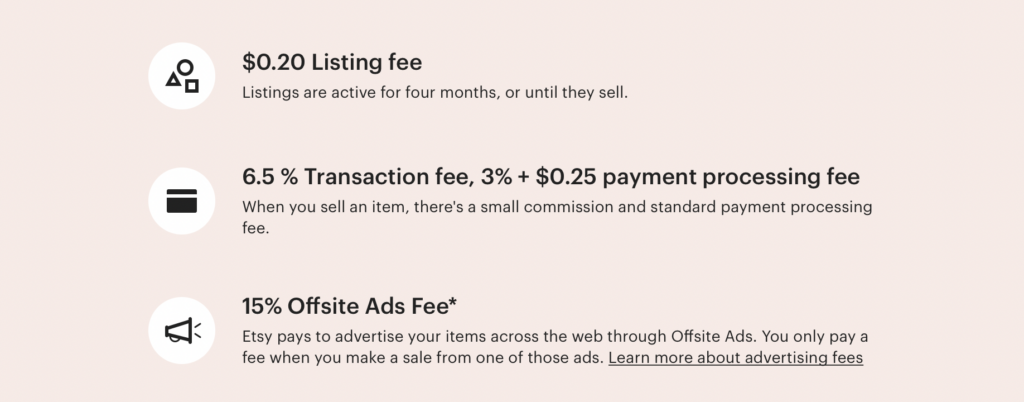
How much will it cost you to sell your products on Redbubble vs. Etsy? Understanding your potential earnings is important if this is going to be a real side hustle or even a full-time income for you. First up, let's look at Redbubble's fees.
Redbubble allows you to determine how much you want to make off each item in your shop. They will show you the Redbubble base price, which includes the actual cost to produce the goods and ship them to their new homes.
You set the margins you want to make on each item, and Redbubble calculates what to sell it at.
Of course, you will also have account fees based on how much you earn. This could range from $1.00 to $92.00 depending on your earnings.
Keep in mind that there is no listing fee required. You will never owe money to the platform if you never make a sale.
Etsy has a much different payment model. First, you will have a listing fee of $0.20 per item in your store. The listing is good for up to four months or until the item sells.
From here, you will have a few more transaction fees to pay:
- 6.5% transaction fees
- 3% + $0.25 payment processing fees
- 15% offsite ads fee (if your sale comes through an ad)
Winner: Redbubble
Print on Demand Marketplace
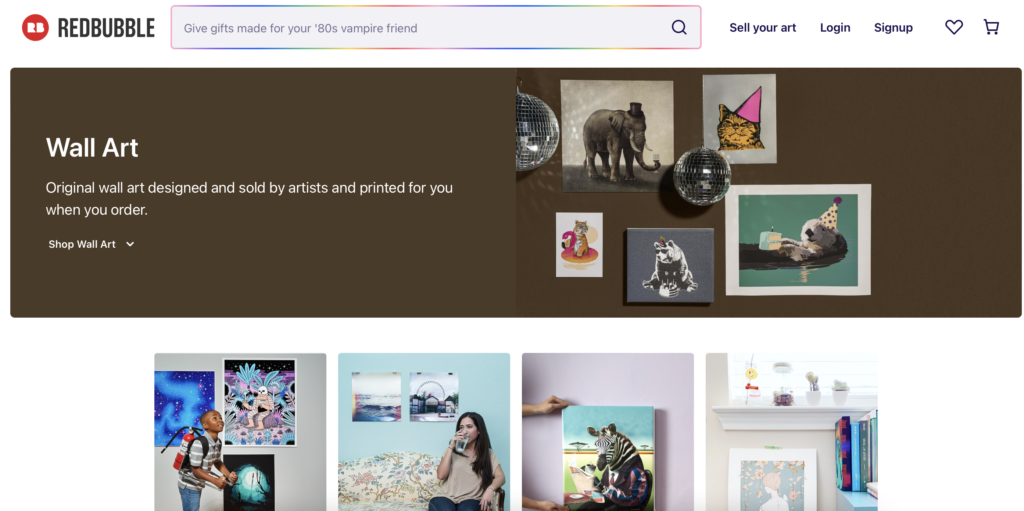
If you are interested in a print-on-demand model for your handmade goods, then there is only one clear winner here.
Redbubble is a premier print-on-demand company that gets the work of independent artists into the hands of more people. They run a robust website that allows you to print designs on any number of physical products, and they handle the manufacturing.
If you want to run an Etsy store but don't want to make your items on your own, you can still use a print-on-demand service. The catch is that you will have an additional step: you'll need to source your items from a print-on-demand company like Printify or Printful to fulfill the order.
Winner: Redbubble
Manufacturing and Packaging

How can you handle the manufacturing and packaging process? If you want to be hands-on, then you might want to pay attention to this core component of running your own online store.
When it comes to manufacturing and packaging, Redbubble doesn't give you many options. Instead, every package will be branded with Redbubble rather than your unique storefront information.
You never lay hands on the finished package, so you can't add any kind of personal touch.
Etsy sellers have a distinct edge when it comes to the manufacturing and packaging process of their items. Namely, you are responsible for all of the shipping of your own items. This means you can package them however you want.
Include advertisements for similar products, handwritten thank-you notes, or wrap your item with tissue paper in your brand colors.
Winner: Etsy
Shipping

If you don't want to mess with shipping labels and calculating shipping fees, then Redbubble might be the way to go.
Redbubble ships in most countries, and they calculate exactly how much shipping will be on each item, totally hands-off for shop owners. They base their shipping fees off of item type, size, and destination.
Additionally, they have two primary modes of shipping: standard and express. Express is more expensive but gets items to their destination faster.
Etsy is a little more complex when it comes to calculating shipping fees. You can calculate shipping for your handmade and vintage items based on the type of shipping, size of the packaging, and areas to ship to.
Buyers pay the shipping fee, but you have to actually package it up and take it to the post office. However, you can also print shipping labels directly from Etsy for up to 30 percent off at USPS and FedEx.
Winner: Redbubble
Payment Methods

When it comes to getting paid, Redbubble vs Etsy doesn't have a clear winner. Both allow you to have a flexible option for payment. Using either of these tools, you can get paid directly to your bank account (personal or business). You can also utilize PayPal to accept your payments.
No matter which way you choose to go, you will always get paid on time from both platforms.
If you want to enroll in Etsy Payments, you will need to select a direct deposit to a bank account. This gives your buyers more flexibility in how they can pay for your handmade goods, so it's worth considering if you don't mind direct deposit.
Winner: Tie
Integrations
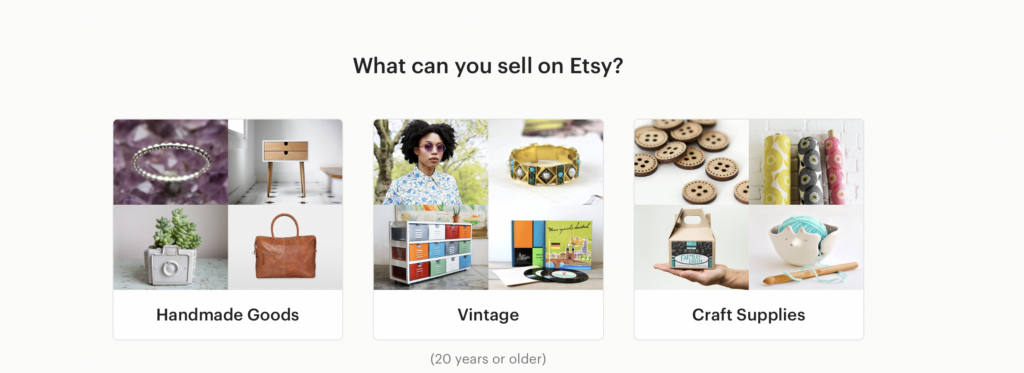
Sometimes, store owners want the option of integrating their storefront with other websites and programs. This can be great for promotional tools, but who wins when it comes to integrations?
At this time, Redbubble does not have much in the way of third-party integrations. It doesn't work with Shopify or other third-party storefronts. However, you can use it to display your goods on your own individual artist website.
On the other hand, your Etsy shop is going to be a little more flexible. There are lots of options for an easy integration with a print-on-demand marketplace like Printify. You can also integrate your storefront with bookkeeping software like QuickBooks.
Winner: Etsy
Final Thoughts: Should You Go with Redbubble vs Etsy?
Online marketplaces are a great opportunity to sell stickers, t-shirts, and any other handmade goods with profit margins that are acceptable to you. The question is: should you go with Redbubble vs. Etsy?
Redbubble is better for any store owner who wants a print-on-demand service that is totally hands-off for them. All you have to do is upload the design, choose the products, and let Redbubble do all of the heavy lifting for you. You never have to mess with shipping or branding. It's a very passive income stream.
Etsy is better for handmade goods like jewelry, but it does require a little more hands-on time for you. If you don't mind the hands-on time, you're rewarded with the ability to implement custom branding and build up a loyal following for your Etsy shop. You'll need to buy craft supplies and actually make the item, but it's a great way to get word out about your product.
Decide which way you want to go and which online storefront is right for you!
Want to learn step-by-step how I built my Niche Site Empire up to a full-time income?
Yes! I Love to Learn
Learn How I Built My Niche Site Empire to a Full-time Income
- How to Pick the Right Keywords at the START, and avoid the losers
- How to Scale and Outsource 90% of the Work, Allowing Your Empire to GROW Without You
- How to Build a Site That Gets REAL TRAFFIC FROM GOOGLE (every. single. day.)
- Subscribe to the Niche Pursuits Newsletter delivered with value 3X per week
My top recommendations













